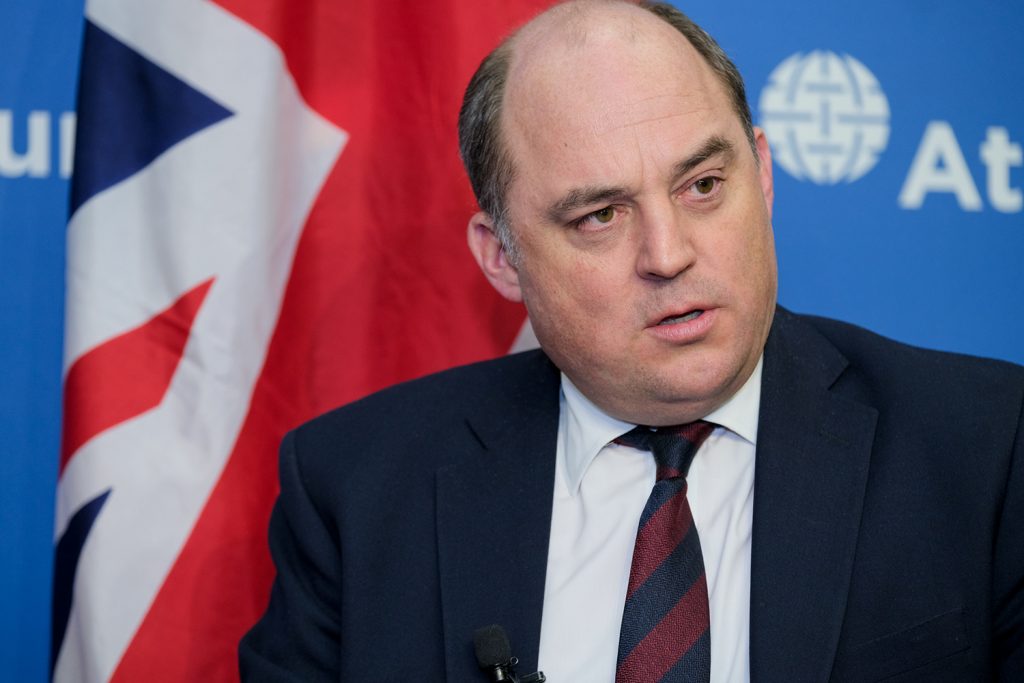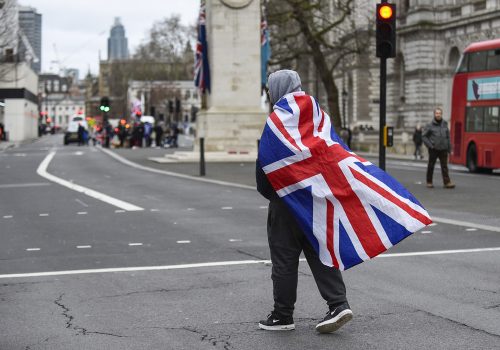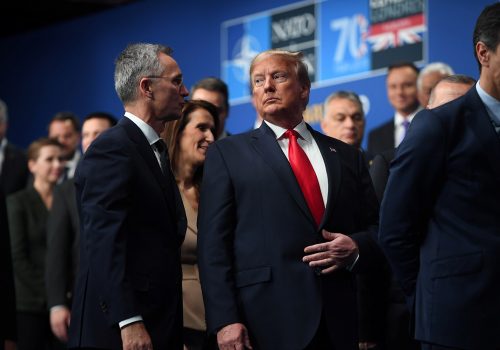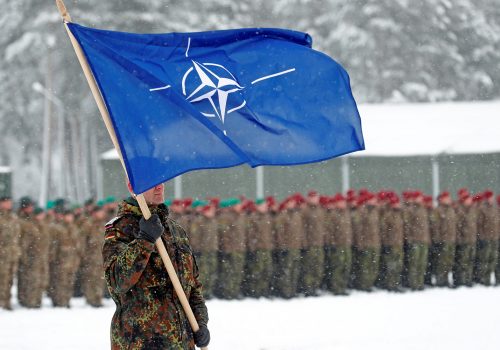“The security of Europe is vital to the United Kingdom’s security [and] that will not change because we have left the political union of the European Union,” UK Defence Secretary Ben Wallace said on March 5. Wallace used his speech at the Atlantic Council in Washington to argue that Brexit would not change the United Kingdom’s desire to promote stability around the world and push back against competition from authoritarian rivals.
Wallace conceded that frustrations with the state of democracy around the world has led many in the West to argue for either shifting attention entirely to domestic issues or accommodating the aggression of competitors such as China and Russia. “Neither course—isolationism or appeasement—is a right one to take,” he argued. “There are powerful values-based and global public good arguments why the UK and the United States should care about conflict and stability overseas based on a moral imperative—a force for good—to reduce the loss of life and human suffering, and indirectly enable a more prosperous, inclusive, peaceful, and sustainable world.”
The United Kingdom’s departure from the European Union in January has “in some respects brought finality to one set of debates, while opening a series of questions and uncertainty about what the future holds for the United Kingdom’s role in European and indeed global security,” according to Atlantic Council Executive Vice President Damon Wilson. But Wallace sought to alleviate concerns about London withdrawing from the world stage, maintaining that it is “in the UK’s core interest…to address conflict and stability overseas,” which he argues “threatens UK national security at home and abroad,” by giving space to terrorists and extremists, providing opportunities to ideological rivals like China and Russia to damage Western interests, limiting economic growth, and fomenting more conflict. He added that “preventing conflict is one of the main ways a country like the UK can exercise its power for good in the international system.”
Wallace maintained that despite leaving the European Union, Britain’s “contribution to security, whether on the European continent or further afield remains iron cast.” He further stressed that “NATO remains the cornerstone of our security,” as it is a “proven and unparalleled defensive alliance—our best means of countering Russian malign activity and hostility.” On top of that, cooperation with Washington will remain paramount as “the United States will always be the indispensable actor in our alliance.”
He stressed that the UK and its European partners “got the White House memo that Europe should not take the United States for granted,” a reference to US President Donald J. Trump’s criticism of NATO members for not spending enough on defense. Wallace pointed out that the United Kingdom remains a leader on defense burden sharing and “continues to champion NATO’s transformation and readiness.” Wallace minister emphasized the importance of increased NATO investment after years of slashing budgets, as “our adversaries did not do the same.” Competitors like Russia and China over the last decades “studied our vulnerabilities, stole our technologies, and invested where we did not.” While some European governments may be frustrated with the criticism from Washington, Wallace argued that “the more allies can do to pay their way, the more work that we can do to modernize [our] capabilities, the more we can do to prevent the United States from facing challenges on two fronts, the better for us all.”
Wallace cautioned, however, that the United Kingdom cannot continue to act as if Washington will always participate in every potential security operation. As British Prime Minister Boris Johnson plans to launch an “Integrated Review” of the UK’s foreign and security policy, Wallace argued that UK policymakers must “reduce” their “overdependence on US support,” in order to make sure Britain is able to act when necessary on the world stage. “Britain will always aim to deploy and fight in all terrains, but at times we and are allies will need to do so without US force protection or [Intelligence, Surveillance, and Reconnaissance] capabilities.”
Wallace also addressed the controversial decision by the UK government to limit, but not totally ban, Chinese telecom giant Huawei from its 5G network, despite lobbying from Washington to completely exclude the company. Wallace stressed that the decision was predicated on assurances from the Government Communication Headquarters (GCHQ) that the limits were sufficient to deny the Chinese backdoor access to British intelligence and that the government would work to push out all Huawei technology over time. Despite initial US threats to cut off intelligence cooperation with countries using Huawei, Wallace confirmed that “at present nothing has changed in intelligence sharing,” and assured that US officials were satisfied with the UK’s limits.
Rather than an excuse to look inward, Wallace argued that Brexit will give the UK “opportunities that an independent country can have. We are free to trade with who we like and to join common cause with whom we like.” Most of all, he said, Brexit would not mean any retreat by Britain from the world stage. “It remains in our own interest to get involved,” in solving the world’s problems, he stressed. “If we do not stand up to be counted, who will? And if we do not act, what will be the consequences for our people and the world?”
David A. Wemer is associate director, editorial at the Atlantic Council. Follow him on Twitter @DavidAWemer.
Subscribe for events and publications on European security
Sign up for updates from the Atlantic Council’s Transatlantic Security Initiative, covering the debate on the greatest security challenges facing the North Atlantic Alliance and its key partners.
Further reading:
Image: UK Defence Minister Ben Wallace speaks at the Atlantic Council on March 5, 2020.



